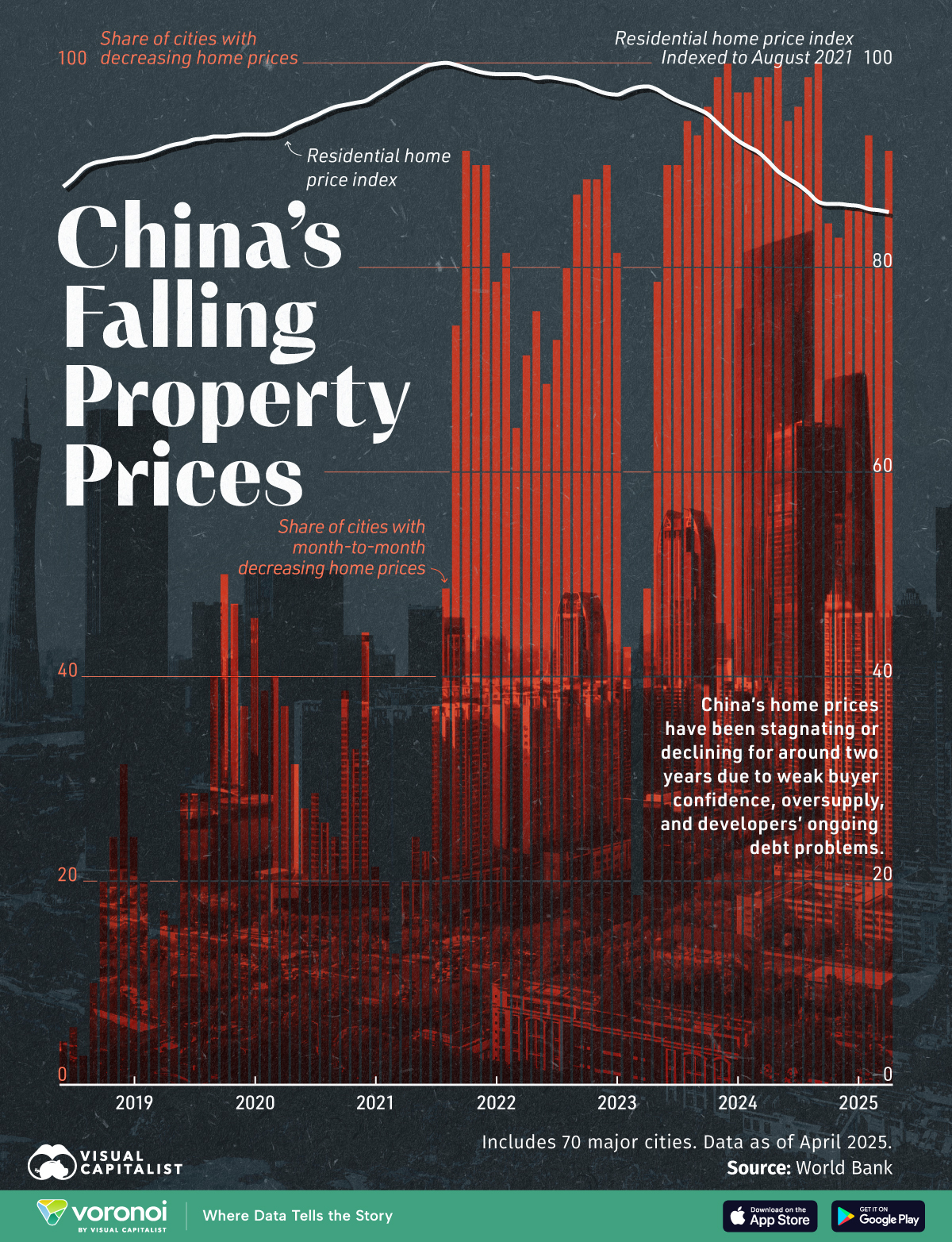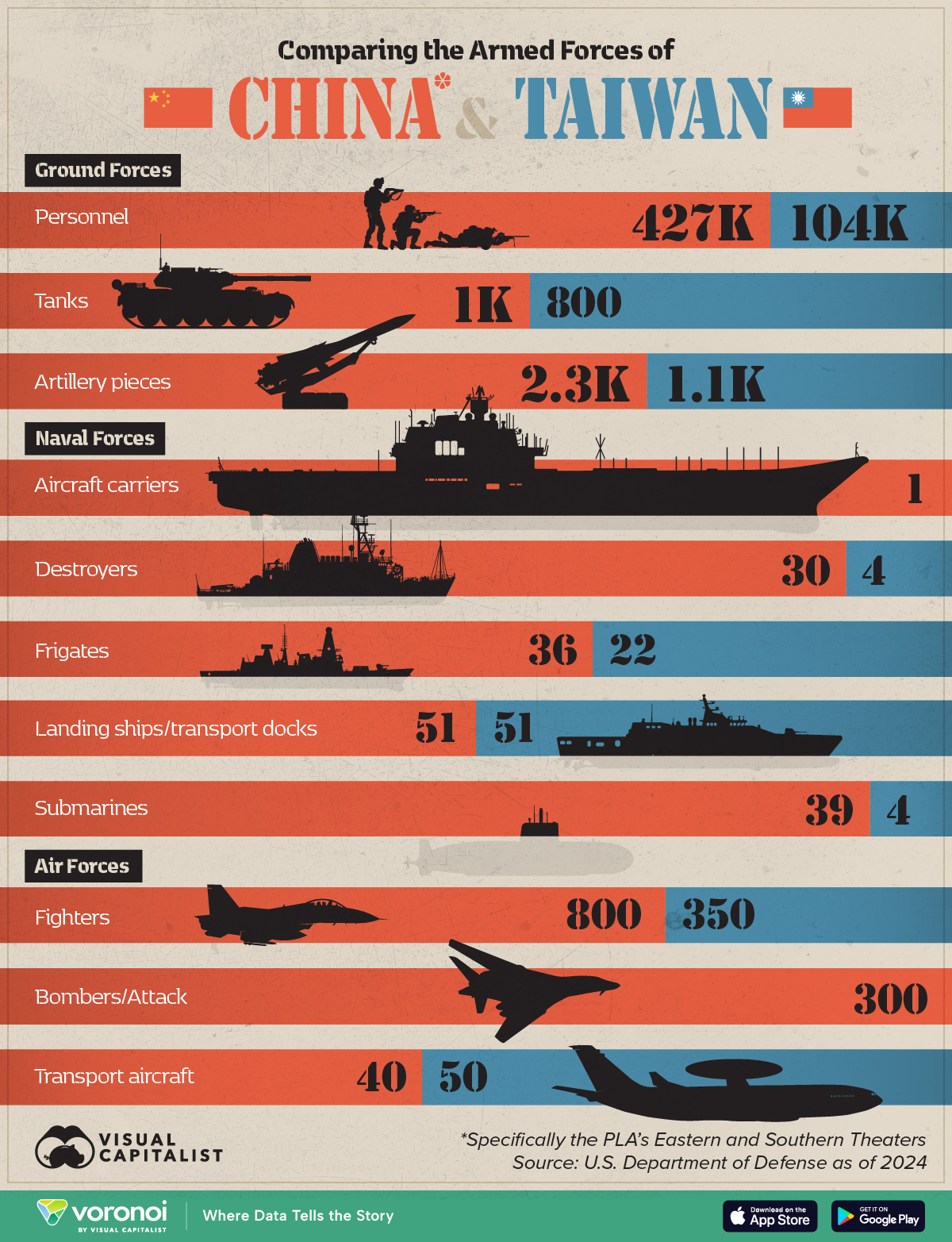Visualizing China’s Real Estate Market Downturn
![]()
See this visualization first on the Voronoi app.

Use This Visualization
China’s Urban Housing Decline
This was originally posted on our Voronoi app. Download the app for free on iOS or Android and discover incredible data-driven charts from a variety of trusted sources.
